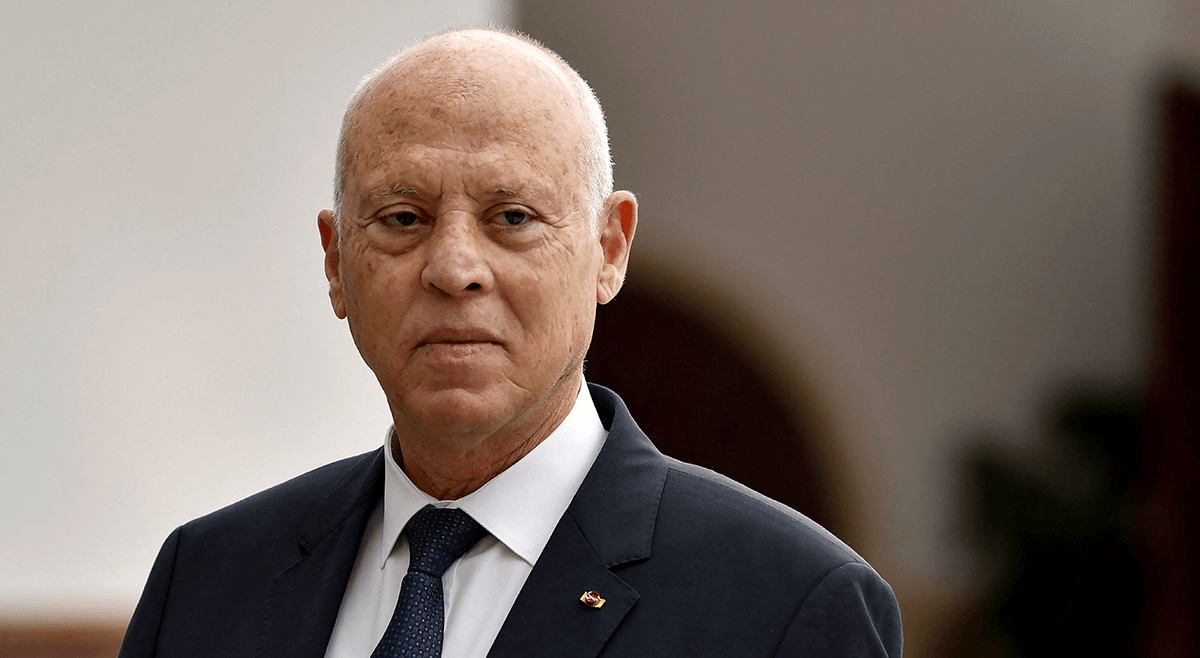Tunisian strongman President Kais Saied said on Tuesday that Islam will no longer be the state religion in his proposed new constitution, which he plans to put to a referendum on July 25. The announcement is part of a promise he made a year ago that he would rewrite the 2014 constitution.
“The next constitution of Tunisia won’t mention a state with Islam as its religion, but of belonging to an umma [community] which has Islam as its religion,” Saied said, noting, “The umma and the state are two different things.”
“The state is a moral person, like a company, but it will never have human ethics, and will not go to paradise, nor to hell,” he added.
"Saied has removed #Islam from #Tunisia's constitution. But it is important to stress that no one in the West asked him to do this. Instead, Saied is himself offering the removal of Islam in exchange for intl recognition of his absolute authority and normalisation of his coup" pic.twitter.com/J75Fdxvv0S
— Sami Hamdi سامي الهاشمي الحامدي (@SALHACHIMI) June 21, 2022
Saied’s statement came a day after he received a copy of the draft constitution by Sadeq Belaid, who was appointed last month by the President to head the committee charged with rewriting the constitution.
Belaid said earlier this month that the removal of Islam as the state religion is meant to prevent the growth of extremism and that 80% of Tunisians “are against extremism and against the use of religion for political ends.” He added that, with the change, Saied is giving voice to the concerns of the Tunisian majority. “That’s exactly what we want to do, simply by erasing Article 1 in its current form,” he stressed, referring to the 2014 document.
Article 1 of the constitution states that “Tunisia is a free, independent, sovereign state; its religion is Islam, its language Arabic, and its system is republican.” It further states that “this article might not be amended.”
Saied's ally explains why Islam is being removed from #Tunisia's constitution:
— Sami Hamdi سامي الهاشمي الحامدي (@SALHACHIMI) June 21, 2022
"The judiciary were using [Islam] in their deliberations by referencing 1st clause of the constitution!!! Their interpretation of this clause [that Islam is a source of law] is ridiculous".#Tunisia pic.twitter.com/4MZtXtOYUU
However, Belaid said that the government will not give credence to an article that promotes religious extremism. “If you use religion to engage in political extremism, we will not allow that.”
He also blamed certain Islamist political parties like Ennahda for supporting extremist elements. “We have political parties with dirty hands. Whether you like it or not, French or European democrats, we won’t accept these dirty people in our democracy,” Belaid emphasised.
On the day that the illegal President of #Tunisia announced that #Islam will no longer be the religion of the state, we celebrate as Muslims the presence of leaders such as @ImranKhanPTI, a brave defender of Islam & #Muslims worldwide.
— د. محمد الهاشمي الحامدي (@MALHACHIMI) June 21, 2022
My God bless him and #Pakistan.
اللهم احفظه. pic.twitter.com/Q5llqu2UxB
Following the success of the Arab Spring protests in Tunisia, which led to the ouster of dictator Zine El Abidine Ben Ali in 2011, the country adopted a new constitution in 2014. The international community hailed the historic move, as it signalled the dawn of democracy in the North African country. The constitution’s drafters were even awarded the Nobel Peace Prize in 2015.
Yet, despite the progress, Tunisia is at risk of reversing most political gains made over the last ten years as a result of Saied’s actions, which experts say are aimed at consolidating his grip on power.
In a power grab last July, Saied indefinitely suspended the parliament, dismissed the PM, and lifted the immunity of all lawmakers. The decision was condemned by the opposition, who called it a coup. The Ennahda Party said it was “unconstitutional, illegal, and invalid” and that it marked a “return to dictatorship.”
Since then, rather than trying to return to normalcy, Saied has been taking even further measures to consolidate his position and power, including suspending the constitution, declaring rule by decree, unilaterally appointing a Prime Minister loyal to him, and replacing the country’s independent judicial watchdog. Earlier this month, Saied also sacked 57 judges over alleged corruption charges and passed a new law further cementing his hold over the judiciary.
Despite the initial support for the President’s move, the tide has seemed to turn against Saied’s favour more recently. This week, hundreds of Tunisians protested across Tunis against the proposed constitutional amendments. The incident follows other instances of mass demonstrations across the country.

